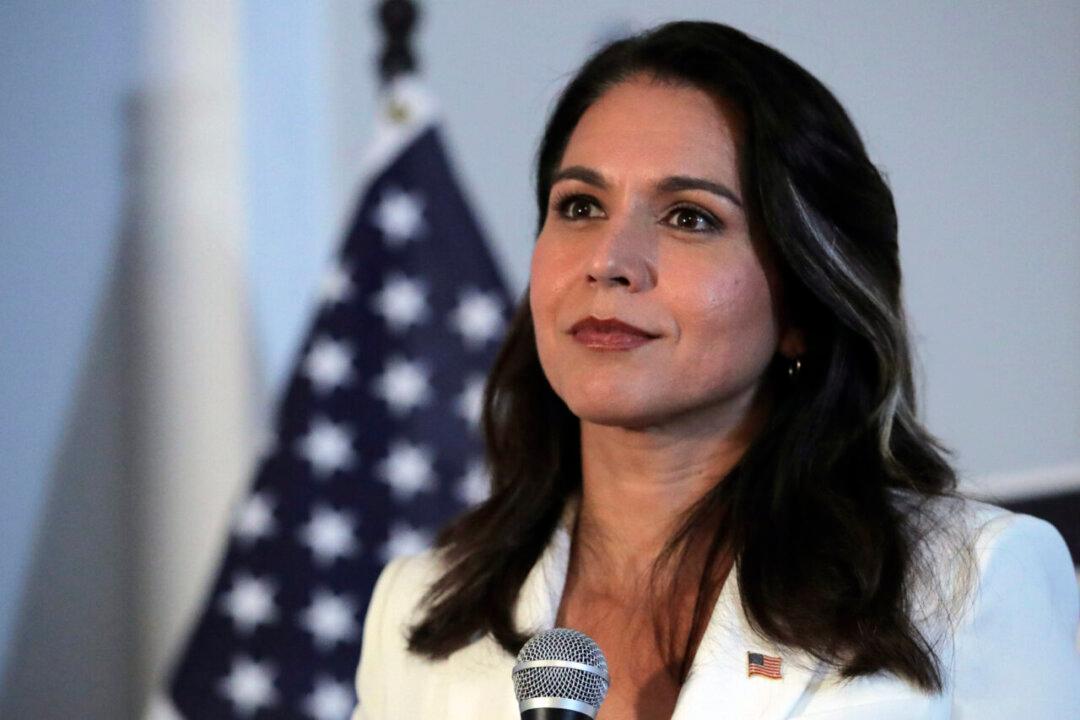Rep. Tulsi Gabbard (D-Hawaii) qualified for the upcoming Democratic presidential debate, getting the fourth poll she needed on Wednesday.
Gabbard hit 3 percent support in a Quinnipiac University poll conducted among likely Democratic caucus voters in Iowa.





